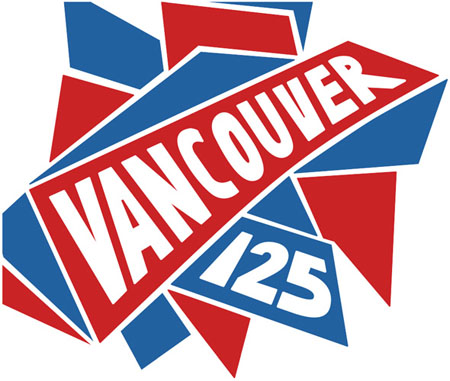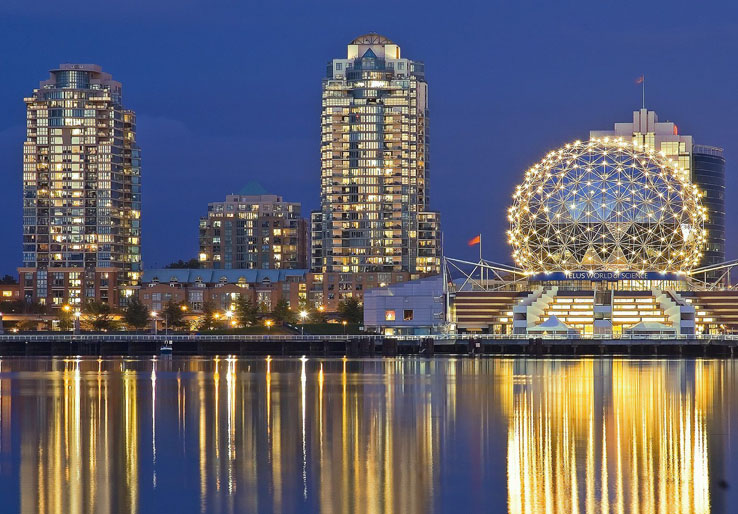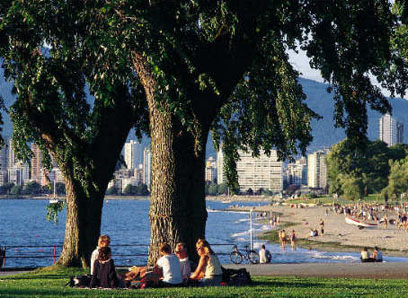Happy 125th birthday Vancouver .. our dreams will decide, & we are their Shapers ..
Apr 6th, 2011 | By Randall White | Category: In BriefMany years ago now, an American political philosopher teaching at the University of Toronto claimed that Vancouver was the only other city in the world in which an authentic Torontonian could feel at home. I am not at all sure that this ever was altogether true, and it certainly no longer is, if it ever was. But as someone born in Toronto, who has lived in that most hated of all Canadian cities most of my subsequent life, I have always thought it might be true for me.
In fact, I did not actually get around to visiting Vancouver until my early 40s – which happened to fall in the late 1980s. I had already read quite a lot about the place, however, starting from an early age, when a book about a young man from Vancouver who became a Mountie introduced me to something called the Kitsilano Boys Band. On my first visit to the place I asked the friends I was staying with (refugees from my Toronto youth) about this organization. And I was disappointed to learn they had never heard of it. Subsequently I discovered why. A “Brief History” on the net today, eg, reports that in 1928 the “General Gordon School Band is formed in Kitsilano under direction of Arthur W. Delamont (later the name was changed to the Kitsilano Boys Band).” And then in 1974 “Kits Band ceases operation.” The item in the online Canadian Encyclopedia is more vague about the group’s demise: “By the late 1970s its activities were reduced to an occasional rehearsal.” At the same time, it notes that “the KBB alumni” included the likes of Ron Collier, Gordon Delamont, and Bobby Gimby – all Canadian musicians with whose work I am familiar myself, strictly from my life in Toronto.
Beyond the Kitsilano Boys Band, my first visit to Vancouver was entrancing, and I inevitably returned (though never quite to re-settle, as urged by my Vancouver friends). From Stanley Park to Robson Street to English Bay and the Museum of Anthropology at the University of British Columbia, and all points beyond and in between, it still seems to me a magical place. It has without doubt a much more attractive geographic setting than Toronto (even allowing for the “raincoast” effect) – and somewhat less of the residual British North American elitism that can at times make Toronto a genuinely annoying place, even for confirmed Torontonians.
Through the various accidents of my ordinary life it seems to make the most practical sense, at this point in time, for me to stay in Toronto for however much longer the Great Manitou of Canada may grant me on this planet. But if some future development were to change all this – the re-election of Mayor Rob Ford, eg, or the return of Stephen Harper to the city of his birth – the very first place I would turn to would certainly be Vancouver.
* * * *
It is no doubt partly with this in mind that I am so very pleased to discover today, April 6, 2011, marks the 125th birthday of the modern City of Vancouver – the jewel of Canada’s Pacific coast. I would like to offer a particular bow to the Haida artist Bill Reid (1920—1998), who has done so much to clarify the remarkable aboriginal heritage of this particular Canadian region. In the same breath one should no doubt mention Emily Carr (1871—1945) – who was born and also died in Victoria on Vancouver Island, but has nonetheless bequeathed the Emily Carr University of Art and Design to the modern City of Vancouver.
I could go on and on and on – about modern Vancouver’s role as a “hotbed for junior mining finance,” etc, etc (as mining industry friends from Australia might remind you, eg). But the editors say I have very little space left here. In the midst of the current fourth Canadian federal election campaign in seven years (see, eg: “Tories maintain 10-point lead but face ‘potential drop’ in BC” just this morning), I am reminded that on my very first visit to what probably is Canada’s most beautiful early 21st century metropolis I purchased a book called Vancouver: Soul of a City, edited by Gary Geddes.
Towards the end of this volume (which I have just taken down from my shelves) there is a provocative poem called “the shapers: vancouver” by “Vancouver’s legendary poet and Canada’s literary giant Earle Birney” (1904—1995). In fact Mr. Birney was born “in Calgary, Alberta, and raised on a farm in Erickson, near Creston, British Columbia,” and educated at “the University of British Columbia, University of Toronto, University of California, Berkeley and University of London.” He spent a few decades after the Second World War teaching at UBC. But I first discovered him as a writer in residence at U of T in the later 1960s – reading a remarkable poem that, as I recall now, so many years later, climaxed with something about “northern California at night” (which Mr. Birney read in a strangely hip voice).
 Call me crazy (of course), but something of the main thrust of Earle Birney’s “the shapers: vancouver” somehow sums up certain aspirations I seem to have for the future of the present Canadian confederation, from coast to coast to coast, in the midst of this (to many of us in Toronto at any rate?) rather strange and unsettling federal election campaign of 2011. I quote selectively, by way of wishing a very happy 125th birthday to Vancouver, BC: “a hundred million years/for mountains to heave … twenty thousand for firs to mass/send living shafts out of the rock … Set down a century only/for the man on the spar-top … walking alone now/in the grandiloquent glitter … is there a rhythm drumming from vision?/shall we tower into art    or ashes? … it is our dreams will decide/& we are their Shapers.” (O if only we could vote for someone like Earle Birney on Monday, May 2!)
Call me crazy (of course), but something of the main thrust of Earle Birney’s “the shapers: vancouver” somehow sums up certain aspirations I seem to have for the future of the present Canadian confederation, from coast to coast to coast, in the midst of this (to many of us in Toronto at any rate?) rather strange and unsettling federal election campaign of 2011. I quote selectively, by way of wishing a very happy 125th birthday to Vancouver, BC: “a hundred million years/for mountains to heave … twenty thousand for firs to mass/send living shafts out of the rock … Set down a century only/for the man on the spar-top … walking alone now/in the grandiloquent glitter … is there a rhythm drumming from vision?/shall we tower into art    or ashes? … it is our dreams will decide/& we are their Shapers.” (O if only we could vote for someone like Earle Birney on Monday, May 2!)





